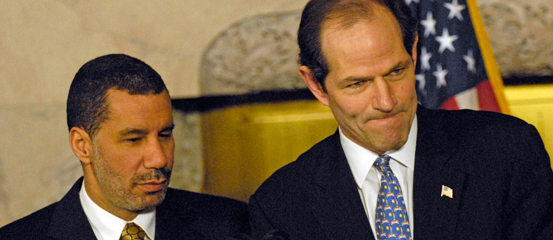The Evidence Keeps Coming
I have argued several times that when the government takes over health care, one way it will be able to control costs is to reduce access. Increase wait times, prohibit certain procedures, etc. Now here is yet more evidence.
BALDWINSVILLE, N.Y., Sept. 7— Attorney General Eliot Spitzer said on Thursday that if elected governor he would close hospitals and drastically cut spending in an effort to restore fiscal discipline to New York State.
[snip]
“We’re going to take the tough medicine,” he said at a campaign stop in this Syracuse suburb, adding: “I’m saying to folks this isn’t all milk and honey. These are going to be tough decisions. Nobody likes to hear that a hospital is going to close, or a wing of a hospital, or beds are going to be shifted, but that is what we have to do.”
Oddly enough, this possible closure of hospitals is so that Spitzer can provide health care for children who currently don’t have it.
Much of Mr. Spitzer’s campaign up to now has been spent making costly promises to voters, including cutting property taxes by $6 billion over three years, offering tens of thousands of uninsured children medical care and increasing education spending by billions of dollars.
They may have insurance, but there may not be a nearby hospital for them to go to if they need it. Rather ironic.
Earlier on Thursday, at a stop here, he said that the health care system would be a main target for spending cuts, in part because Medicaid is the largest single part of the budget. He said he would not only seek to close hospitals, building on the work of a state hospital closing commission that is expected to issue a final report in November, but he would also seek to overhaul the system that requires the state to reimburse hospitals for care given to uninsured patients.
This is the great thing about government supplied health care, costs such as not being able to get to a hospital, or having to wait longer for a procedure wont show up on the government’s ledgers so it will look like Spitzer is doing something about health care spending. In reality, he is transferring the budget problems from tax payers to those who need health care.






You mean, of course, that this is the great thing about private health care – that lack of access to services, “wait-time” for [sufficient dollars to buy] proper care, the closing of hosptials etc. is all a function of the operation of the marketplace – thus not something anyone can be blamed for, or held accountable for, or have the responsibility to change. Its just life, and life sucks sometimes.
No Tano, that isn’t what I meant, and I’ll thank you not to put words in my mouth.
Now, if you want to say that a market based system can result in hospital closures, people not getting access to care, etc. that is true. However, I don’t advocate a purely market based system of health care either. Which is why you are a complete jerk for putting words in my mouth.
However, I don’t advocate a purely market based system of health care either.
Leaving us to wonder what The Verdon Plan is … but I suppose you might then want The Anderson Plan for Iraq, and then it would get embarrassing, us just sitting looking at each other like that.
But scare-talk about “closing hospitals” isn’t persuasive. It’s like saying that “access to education” is being reduced if some schools are closed and students sent to other schools. I can well believe that some hospitals with few/no patients need to be closed.
Oh c’mon Steve. I KNOW that isnt what you meant, and its silly to pretend that I was putting words in your mouth.
Its called sarcasm.
Speaking as someone who has to purchase private health insurance, the biggest change I would want to see is a plan that allowed me as an individual to aggregate with other similar people across state lines. The other thing I would want is greater transparency in rates charged, what’s covered, consumer complaints, etc. I found that counter intuitively, it was cheaper for me to get the same policy from the same company with the same coverage by going to an insurance agent (who presumably gets a commission) than buying of the web. That revelation told me that the insurance companies are not operating in anything close to a free market so no wonder things are screwed up.
And I’ve already outlined it, on this website no-less. You even commented in the post Anderson, twice no less. Heck, I bet you can find the basics of the “Verdon Plan” (or more accurately the “Kling Plan”) in several posts on this website.
So…your plan for Iraq is….?
You even commented in the post Anderson, twice no less.
Guess I didn’t find it as memorable as I’d hoped? References to posts past are always sweeter with links.
The Iraq Plan keeps changing as things get worse, of course. I think we’re pretty much committed to a civil war, small or large, and then trying to get in good with the winner by offering ’em advice, weapons, $$$, etc. But whatever it is, the Iraqis need to be doing it themselves. I’m open to remaining in large bases, if that will keep Iran out. Simply getting more of our kids killed on the streets is not getting us anywhere, however.
Try here. Also, IIRC, Arnold Kling has something on TCS as well.
Engineering a solution is generally a lot easier if you define the problem correctly. Of course, defining it simply is a lot easier.